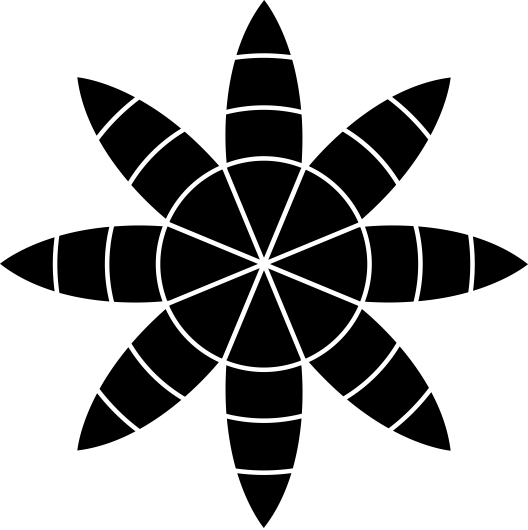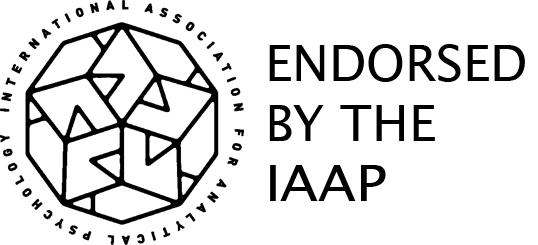Date
- Apr 11 - 13 2025
Time
UTC+3- 1:00 pm - 1:30 pm
Local Time
- Timezone: America/New_York
- Date: Apr 11 - 13 2025
- Time: 6:00 am - 6:30 am
Cost
- €200.00
Location
Organiser

Lithuanian Association of Analytical Psychology
Website
https://jungian.directory/iaap-organisations/laap/Updated 15 Sept 2021. No events.
The Interplay Between Culture and Psychotherapy: Research and Reflections
Joint IAAP/LAAP Vilnius University Conference
In today's globalized world, understanding the cultural dimension of human experience has become an important issue. Culture has a significant impact on an individual's belief system and relationship dynamics; it can shape emotional regulation and the process of making meaning. Relatedness to culture can be a resource for an individual’s self-realization, but it can also restrict the development of a person’s potential. Cultural trauma and its healing, the manifestation of cultural complexes, immigration and integration into other cultures - all these and other issues arise in the psychotherapeutic process and are part of professional training. Questions of cultural identity and the experience of encountering the other are sensitive issues. Engaging with difference and diversity at a deep level can be an enriching experience, but it can also be deeply disturbing when it challenges the values and beliefs of all those involved in the process. According to Analytical Psychology, even the ways of engaging with the unconscious depend on the cultural context in which an individual lives.
How do psychotherapists understand the role of culture in an individual’s development and in their own psychotherapeutic practice? Is the concept of cultural identity still relevant in understanding the multidimensional therapeutic relationship? How can we recognize cultural complexes in contemporary times and how can we heal them? What issues emerge as the main elements of cultural responsiveness in growing multicultural societies? Reflecting on these and other questions would be important for a deeper understanding of the interplay between psychotherapy and culture in psychotherapy practice and training. A major aim of the planned conference is to provide a forum for psychotherapists and researchers to come together and reflect on the place of culture in psychotherapy practice in different cultural settings.
The international conference will be held at Vilnius University, which was founded in 1579 and is not only Lithuania's oldest and largest institution of higher education, but also a vibrant center of research and Lithuanian culture. The University is renowned for its research contributions and its diverse academic community, which provides a stimulating environment for scholarly discussion and networking.
The symbol of the straw garden, which we have chosen as the conference image, is an important heritage of ancient Lithuanian culture. It expresses the idea of the interconnectedness of all phenomena and a central organizing principle of the universe as the opposite of chaos. In 2023, the tradition of straw gardens was included in UNESCO's Representative List of the Intangible Cultural Heritage of Humanity.
We hope that the meetings at the joint IAAP/LAAP/Vilnius University conference will provide new insights and inspire participants to continue collaborating in the search for bridges between different cultures and analytical psychology, between research and psychotherapy.
Programme
11 April, Friday
13 00- 13 30 Registration
13 30 – 14 00 Opening ceremony of the conference: IAAP President Misser Berg, LAAP President Goda Rukšaitė, Director of the Department of Psychology of the Vilnius University Prof. Roma Jusienė.
The Interplay Between Culture and Analytical Psychology: Research, Practice and Reflections
14 00 – 14 30 Prof. Gražina Gudaitė (VU, LAAP, Vilnius) Role of culture and engagement with unconscious in Jungian psychoanalysis
14 30 – 15 00 Suzanna Wright (SAAP, London) Identity confusion and the cultural other - experiencing the “me" and "not me" in oneself
15 00 – 15 20 Discussion
15 20 – 15 50 Coffee break
15 50 – 16 20 Prof. Verena Kast (CGJIZ, Zurich) Emotional creativity and cultural differences
16 20 – 16 50 Algirdas Petronis (LAAP, Vilnius) Cultural imagery as a transitional space: bridging inner and outer divisions
16 50 – 17 10 Discussion
17 10 – 17 20 Break
17 20 – 17 50 Lizbeth Myers Zacho (DSAP, Copenhagen) The role of women’s anger in different cultures
17 50 – 18 20 Svitlana Shevchenko (UDG, Zaporozhe) Ukrainian women and war: cultural aspects and historical perspective
18 20 – 18 40 Discussion
19 00 Reception
12 April, Saturday
Exploring Cultural Identity and Manifestation of Cultural Complexes
09 00- 09 30 Prof. Danutė Gailienė (VU, Vilnius) Cultural trauma as a violation of cultural identity
09 30 – 10 00 Catherina Vezzoli (CIPA, Milano) Navigating between transgenerational trauma and idealization. Building complex and inclusive cultural narratives in therapy
10 00 – 10 20 Discussion
10 20 – 10 50 Coffee break
10 50 – 11 20 Valentina Samus (UDG, Kyiv) Facing death: traditional and modern ways to cope with fear and grief
11 20 – 11 50 Malgorzata Kalinowska (PSJP, Krakow) To be able to approach the Future as a friend. Cultural complex and healing.
11 50 – 12 10 Discussion
12 10 – 12 20 Break
12 20 – 12 50 Dr. Jörg Rasche (DGPA, Berlin)The issue of cultural complexes in the context of the Russian war against Ukraine.
12 50 – 13 00 Discussion
1300 – 14 30 Lunch
14 30 – 15 00 Arthur Niesser (AJA,London) Meeting the culturally other in the consulting room
15 00 – 15 30 Ramona Gredzena (LAAP, Riga) Reflections on the role of literature in engagement with the unconscious in Jungian analysis
15 30 – 15 50 Discussion
15 50 – 16 20 Coffee break
16 20– 16 50 Linas Stankevičius (LAAP, Vilnius) Hidden layers of culture: exploring cultural complexes in psychotherapy
16 50 – 17 20 Rūta Juzūlėnaitė (FEGAP, Tallin) Navigating cultural unconscious in search for cultural identity. Role of sound and music in approaching otherness
17 20 – 17 40 Discussion
19 00 Gala Dinner
13 April, Sunday
Understanding Culture as a Complex, Multidimensional Process in Today’s World
09 00 – 09 30 Marianne Muller (CGJIZ, Bern) Living democracy- inside and outside
09 30 – 10 00 Prof. Audrius Beinorius (VU, Vilnius) Psychoanalysis and culture: some postcolonial and anthropological reflections
10 00 – 10 20 Discussion
10 20 – 10 50 Coffee break
10 50 – 11 20 Prof. Jolanta Kowal (AJAP, Wroclaw University) The role of culture in shaping identity in a changing world: A Jungian perspective
11 20 – 11 50 Dr. Dovilė Petronytė Kvedarauskienė (VU, LAAP, Vilnius ) Culture confronts destruction: split, relatedness, solidified identity
11 50 – 12 10 Discussion
12 20 – 12 50 Prof. J. Cambray(CGJUNGENE, California) Cross-cultural Cyber-therapy: Opportunities and Challenges
12 50 – 13 10 Discussion
13 10 – 13 30 Closing of the conference
-
Brief Overview:
€180 before February 1st, 2025; €200 after February 1st, 2025
-
00
days
-
00
hours
-
00
minutes
-
00
seconds

